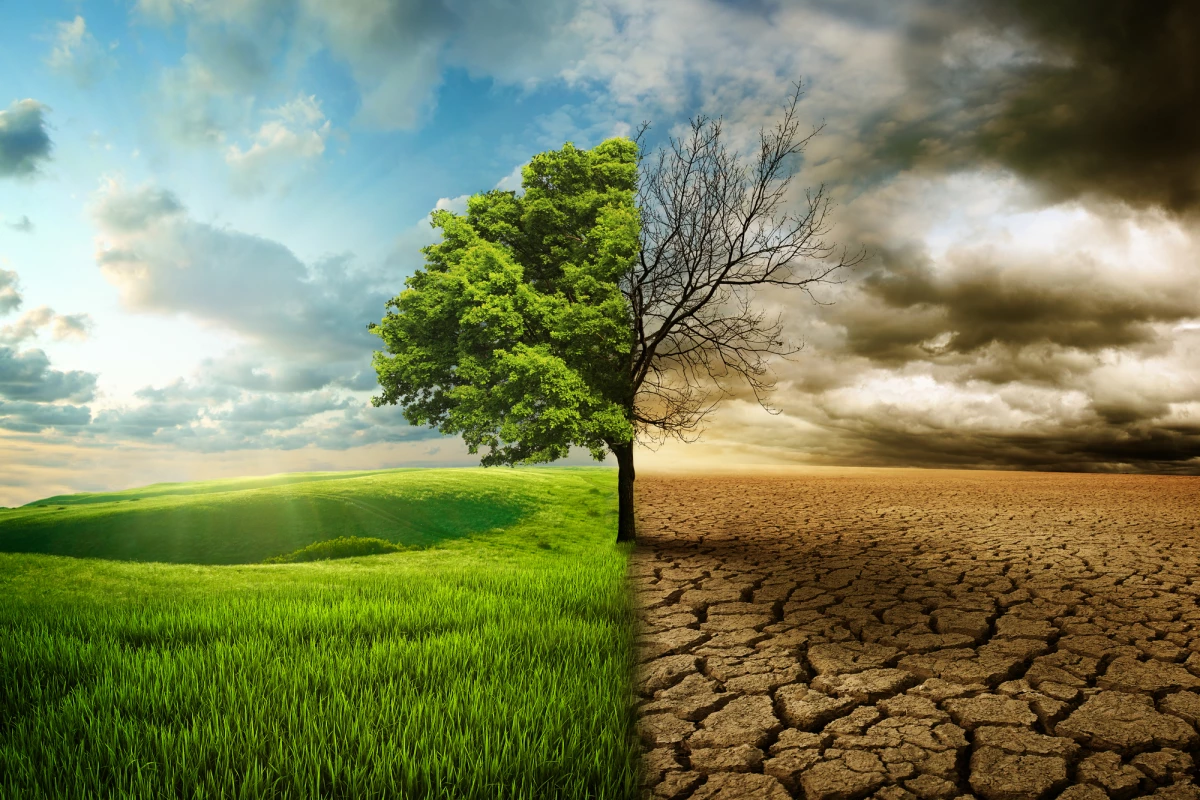Traditional climate models take a lot of data into account when predicting how the planet's warming trend will continue to progress. But a group of scientists from around the world say that they might be missing a critical aspect to the complex system that is planet Earth: feedback loops. The team identified 27 amplifying climate feedback loops, each of which demonstrates how one effect of climbing temperatures can lead to events that further reinforce dangerous global warming trends. Taking these loops into consideration, say the researchers, makes immediate climate action even more crucial.
Dire warnings from the scientific community regarding global warming have been rolling in for years. In 2019, the UN report on global warming drew attention to the fact that a "climate apartheid" was on the horizon, pointing to the way in which changing temperatures could increase the gap between the wealthy and the poor who will struggle to find clean water and food sources. Last year, a UN report said that, thanks to the warmest seven years ever recorded and record-high greenhouse gas emissions, the world is headed into an "uncharted territory of destruction." Other studies showed that the Arctic Circle is warming at four times the global rate, and that Europe is warming twice as fast as the rest of the planet.
Still, as dire as these observations and warnings are, the scientists involved in the new study, led by researchers at Oregon State University, say that things might actually be even worse than they appear because the effects of climate feedback loops aren't always taken into consideration.
This might mean that current models are overstating how much of a remaining carbon budget we have. The global carbon budget is a read on how much carbon dioxide can be released into the atmosphere before the climate warms to a dangerous 1.5 °C (2.7 ºF) rise in global temperatures. It is often the figure used to set greenhouse gas reduction policies and other measures to slow global warming, so if it's wrong, our current measures might simply not be enough to avert climate catastrophes.
One thing leads to another
One of the climate feedback loops you may have already heard of involves the melting of polar sea ice. This loop is created due to the principle that ice reflects heat from the sun, while the oceans absorb it. Therefore, as we lose ice to global warming and the oceanic surface area effectively increases, the planet reflects less heat and soaks up more. This leads temperatures to climb, which causes more sea ice to melt, and the cycle accelerates.
Less well-known feedback loops in the report include the ways in which coral reef die-off, changing insect patterns, increasing wildfires, rainfall in the Antarctic, and changing cloud patterns all feed into loops that may be accelerating global warming. A paper published in the journal One Earth spells out each of these "amplifying" feedback loops, which are chains of events that accelerate climate change.
The paper also lists seven additional climate feedback loops which may help to put the brakes on global warming, such as the possible increase of rainfall in the Sahara, which could lead to more vegetation that could sequester more CO2 from the atmosphere. It additionally identifies seven loops whose effects are as yet unknown, such as shifting ozone patterns in the atmosphere.
All feedback loops were divided into three categories: physical, such as the effects of water vapor on climate; biological, which includes events like forest dieback; and human, such as our agricultural activities.
Overlapping loops
While any of the accelerating loops might be worrisome on their own, the researcher also say that loops can overlap, having an even greater effect on planetary temperatures.
"Moreover, because climate feedbacks can interact with each other and exhibit temperature dependence and non-linearities, currently weak feedbacks have the potential to become stronger, following warming driven by other feedback loops," they write. "In a grim scenario, interacting feedback loops could result in a sequence of climate tipping points being exceeded, producing 'climate cascades,' whereby the net effect of reinforcing feedbacks is greater than the sum of their individual effects under current conditions."
A website has been launched along with the paper's publication, which provides the opportunity for the public to interact with several feedback loop models. On it, the researchers call for a shift in global climate policy that takes a more holistic view of the planet.
"A targeted expansion of research is needed to incorporate biologically-based feedbacks into Earth system models to guide climate policy objectives," they say. "Concurrently, policymakers must implement plans to minimize risks by greatly accelerating the reduction of greenhouse gas emissions."
Source: Oregon State University





